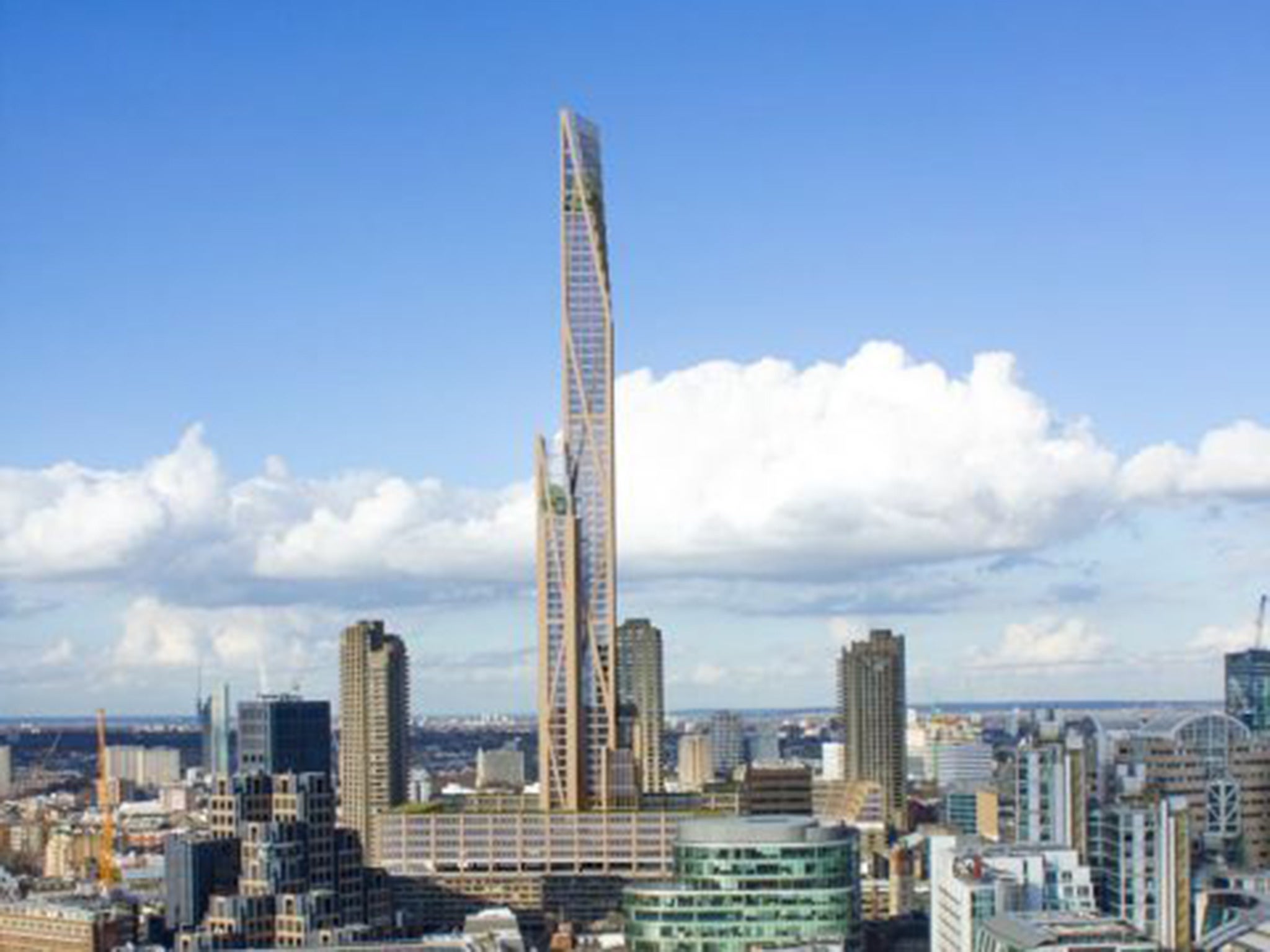Heard the one about the wooden skyscraper? Sounds like a tall story, but it could happen…

Your support helps us to tell the story
From reproductive rights to climate change to Big Tech, The Independent is on the ground when the story is developing. Whether it's investigating the financials of Elon Musk's pro-Trump PAC or producing our latest documentary, 'The A Word', which shines a light on the American women fighting for reproductive rights, we know how important it is to parse out the facts from the messaging.
At such a critical moment in US history, we need reporters on the ground. Your donation allows us to keep sending journalists to speak to both sides of the story.
The Independent is trusted by Americans across the entire political spectrum. And unlike many other quality news outlets, we choose not to lock Americans out of our reporting and analysis with paywalls. We believe quality journalism should be available to everyone, paid for by those who can afford it.
Your support makes all the difference.The London skyline is becoming increasingly dominated by tall towers made of steel and glass. Now something more extraordinary has been suggested to join the Shard, the Gherkin and even the Cheesegrater: a giant skyscraper made of wood.
Plans for London’s first timber skyscraper, dubbed The Toothpick, were presented to the Mayor of London, Boris Johnson, this week, with researchers saying natural materials were “vastly underused”.
They added that wood could revolutionise construction in the 21st century in the same way that steel, glass and concrete revolutionised buildings in the 19th and 20th centuries, creating the Crystal Palace and the Parisian arcades. The design is for an 80-storey, 300m-high wooden building integrated into the Barbican complex. The tower would create 1,000 new residences. The Architects’ Journal described the concept scheme as “toothpick-like”. It would be the second-tallest building in the capital, a little shorter than the Shard’s 310m.
PLP Architecture has teamed up with researchers from Cambridge University’s department of architecture and engineers Smith and Wallwork to draw up proposals for the development of tall timber buildings in central London. The Cambridge researchers wrote: “The use of timber as a structural material is an area of emerging interest for its variety of potential benefits, the most obvious being that it is a renewable resource, unlike prevailing construction methods, which use concrete and steel.”
They added that the research also investigated other potential benefits such as cheaper costs, less time for construction, and lighter buildings.
Michael Ramage, the director of Cambridge’s Centre for Natural Material Innovation, said: “The Barbican was designed in the middle of the last century to bring residential living into the City of London, and it was successful.
“We’ve put our proposals on the Barbican as a way to imagine what the future of construction could look like in the 21st century.”
Rather than simply copying steel and concrete buildings but using wood, the architects believe they could create new designs with the material. The researchers acknowledged concerns that it would be a fire risk, but claimed it would meet or exceed current fire regulations.
Currently, the world’s tallest timber building is a 14-storey apartment block in Norway, which would be dwarfed should Boris Johnson approve plans for London’s timber skyscraper.
Join our commenting forum
Join thought-provoking conversations, follow other Independent readers and see their replies
Comments